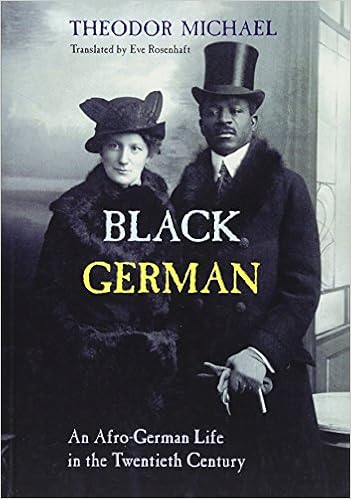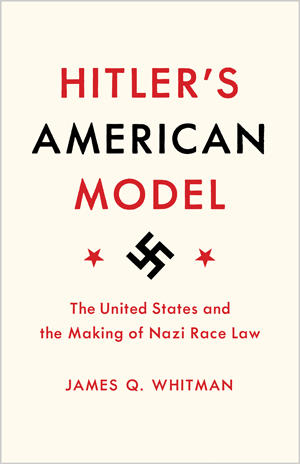Call for Papers: Power, Intimacy and the State: Mixed Families in Europe and Beyond
Power, Intimacy and the State: Mixed Families in Europe and Beyond Conference
University of Amsterdam
June 12-13, 2017
2017-01-20
Betty de Hart, Professor of Migration Law
Amsterdam Centre for European Law and Governance (ACELG)
University of Amsterdam, Amsterdam, Netherlands
CALL FOR PAPERS (View PDF version here.)
Historically, mixed couples and people of mixed descent have been seen as a problem, in popular culture as well as in academic literature. ‘Ethnically’ and ‘racially’ mixed relationships were described as dominated by power imbalances and as devoid of love. This perspective was brought to bear upon relationships and marriages in colonial times and in times of slavery. Even today, within the context of global migration, mixed couples are often perceived in negative terms, e.g. in discourses on ‘mail order brides’ (marriages between white men and migrant women) or ‘beznez marriages’ (marriages between white women and migrant men).
There is no denying that mixed couples and relations are fraught with power inequalities as they developed in the context of historical and modern-day global inequalities, colonialism, post-colonialism, slavery and racialised hierarchies. However, issues concerning the entanglement of power and privilege with intimate relationships are much more complex than they are often envisioned to be. Since the 1980s, scholars of ‘mixture’ and ‘mixedness’, including critical race and critical mixed race studies, have been questioning this pathologisation of mixed couples and mixed descent. They have called for more nuanced approaches to the lived experiences of mixed couples and persons of mixed descent, that should help us strike a proper balance between an overly negative view on the one hand and an unwarranted romanticised view on the other, which regards mixed relationships and mixed heritage as a means for creating a boundary-less and race-less world.
Hence, this conference addresses questions such as: how we may gain a fuller understanding of the lived experiences of mixed couples, power, and intimacy, without pathologizing and dehumanizing them? This conference aims to approach these questions from international comparative perspectives. How can a balanced view be achieved in the European context, where mixed couples are mostly studied with respect to the contradictory imperative of cultural assimilation on the one hand and respect for cultural difference on the other? And what about other continents such as Africa or Asia?
The conference
The conference seeks to bring together people from different disciplines (ethnic and racial studies, critical (mixed) race studies, history, (post)colonial studies, film and media studies, literature, sociology, anthropology, geography, law, gender studies, sexuality and queer studies, migration studies, et cetera), and from different national backgrounds. We believe that an interdisciplinary and comparative approach is key to gaining the ‘thick’ understanding of mixed relationships that this conference aims at. We especially hope to give a boost to the study of mixture and mixed intimacies in the European context.
The conference is a joint initiative of the Amsterdam Centre of European Law and Governance (University of Amsterdam), and the Maastricht Centre for Gender and Diversity, in cooperation with LovingDay.NL. It will take place on 12 and 13 June 2017, when Loving Day is commemorated as the 50th anniversary of the 1967 Loving v. Virginia American Supreme Court decision, that held that interracial marriage prohibitions were unconstitutional.
Papers may relate to, but are not limited to, the following topics:
1. Mixed couples and persons of mixed heritage navigating power and inequality
In order to study power differentiations within mixed families adequately, obviously, not only race or ethnicity but also gender and class are relevant identity markers. How can an intersectional approach of race, gender and class illuminate power dynamics within mixed families? How do members of mixed families respond to them? Another issue is how youngsters and persons of mixed descent negotiate the different social dynamics and power relations that shape their experiences? How and by what means do they claim the power to define themselves?
2. Activism and NGOs of mixed families and people of mixed descent
Across the globe, mixed couples and people of mixed descent have become activists and established NGOs to facilitate the telling of their stories and to challenge the disempowerment caused by dominant negative, pathologizing understandings of mixed couples and mixture. Who are the persons and parties that speak in the name of mixed families, and what are the interests at stake? What alternative discourses do they put forward? How do stories and experiences of mixed families and persons of mixed heritage matter in public and political debates on multicultural/multiracial societies, and anti-racism? And how does discovering ‘hidden’ historical stories of mixed heritage function in these debates?
3. State and institutional policies shaping power and inequalities
Power dynamics within mixed couples and families are closely intertwined with the power hierarchies of race/ethnicity, gender, and class within society at large. State laws and policies shape identities of ‘race’ and ‘ethnicity’ and determine the definition of who or what is ‘mixed’. State and institutional policies have both struggled to discourage or prevent, and to encourage or even celebrate mixed relationships. If state and institutional policies decide the meaning of difference, how should we understand various meanings of ‘mixed couples’ and ‘mixed descent across Europe and beyond? What are the transnational linkages between continents, colony and metropole, global north and global south? How does the state shape and regulate mixed families and identities and which effects do they have on the internal power dynamics of mixed couples?
4. Performing mixed relationships in the arts, popular culture and news media
In the present and in the past, the arts, popular culture and news media have been enacting specific scripts for mixed relationships, which have confirmed and critiqued perspectives implied in social policies, and state politics. We will study in what ways the arts, popular culture and news media have constructed, mediated and challenged the dominant, problematizing approach to mixed couples and people of mixed descent, as well as unwarranted romantic idealizations of mixed couples as the key to a fair society. What concepts of mixed identity have been produced by these media and how were these perceived by the general public? What were the agencies of mixed individuals and families in dealing with the written texts and visual images about them? And how have these changed through time and across space?
5. Studying mixedness in Europe
Until today, Europe does not have a strong academic tradition in studying mixed couples and mixed descent, as opposed to, for instance, the US or the UK. How can the study of mixedness in Europe be given a boost, and move beyond the exclusive association of mixed couples with the ‘assimilation versus difference’ debate? How is European research linked to dominant, politicized categorizations of what and who is ‘mixed’? How is research in Europe linked to policy perceptions of the social meaning of mixed relationships and mixed heritage? Do European research traditions challenge the binaries between ‘us’ and ‘them’? And what about the heteronormativity of much of the studies on mixed couples and families? How can the development of an interdisciplinary or multidisciplinary approach help us understand the relation between power, intimacy and the state in the European context? How can we take inspiration from the Anglo-American research traditions? And in what ways can we employ approaches from critical race and critical mixed race studies?
Abstracts of maximum 400 words to be submitted before March 1, 2017 at: mixedintimacies-fdr@uva.nl
Check our website for regular updates of conference information and practical matters http://acelg.uva.nl/mixedintimacies
The conference will be held at University of Amsterdam, Amsterdam, The Netherlands.
Conference organizers:
View in PDF here.








